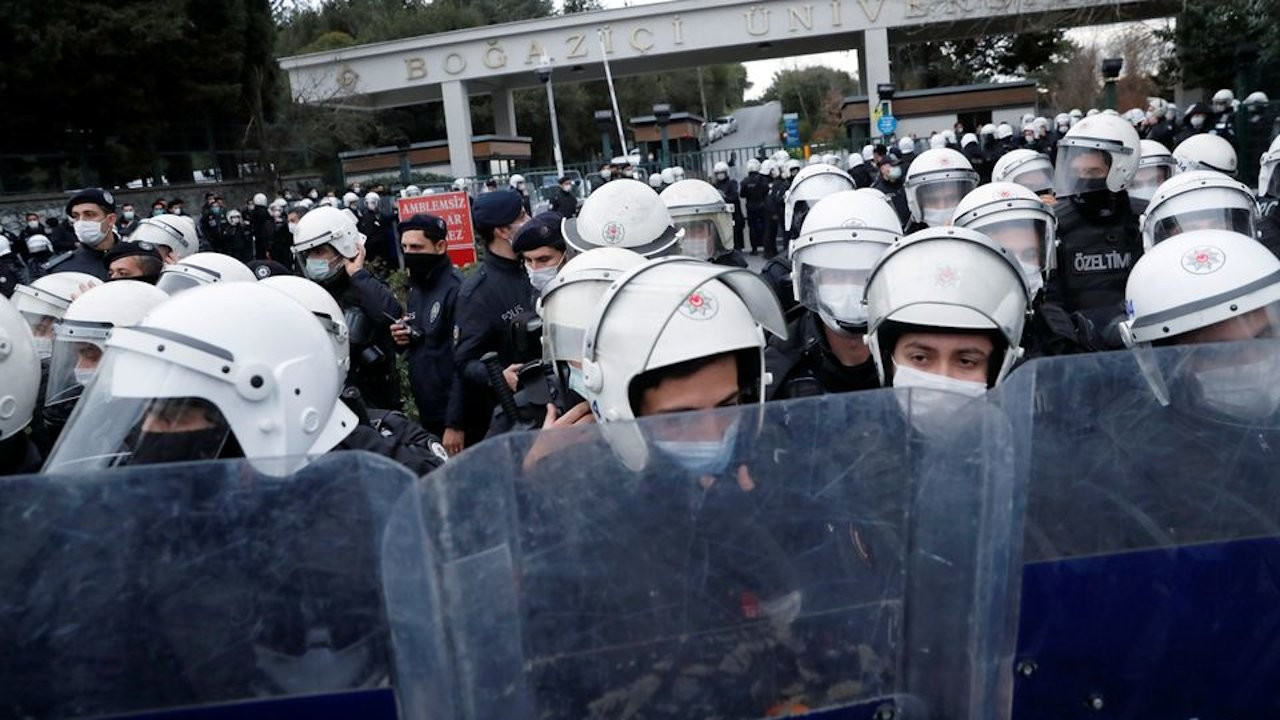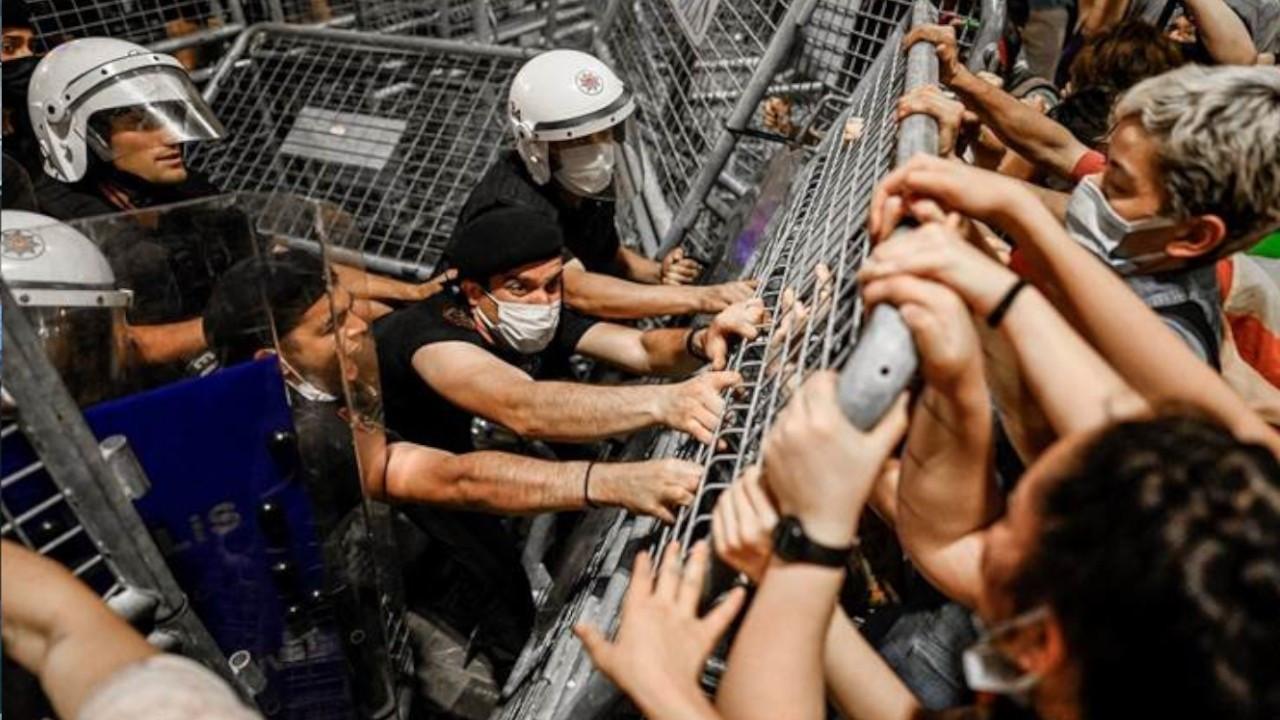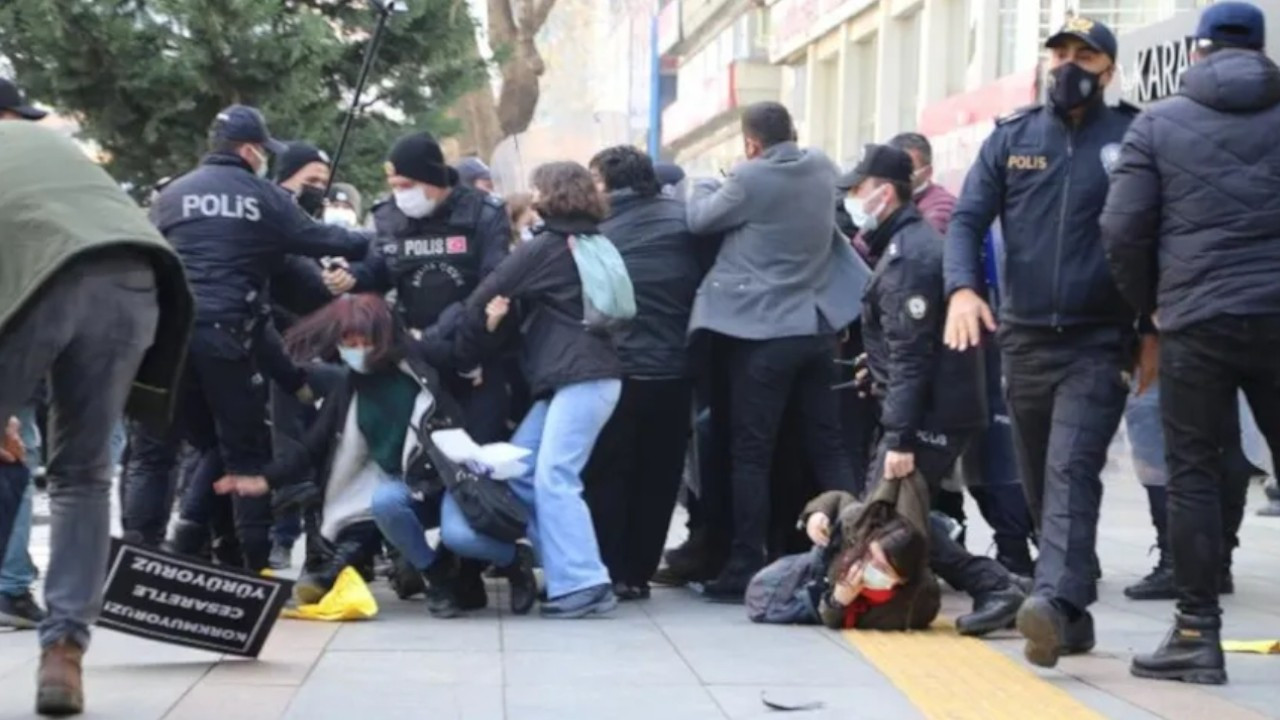Despite public retreat, Interior Minister Soylu pushes forth with illegal ban on filming police
After Turkey’s Council of State stayed an order by the Interior Ministry criminalizing reporting of police response, Interior Minister Süleyman Soylu publicly expressed respect for the ruling. Now, reporting reveals his ministry appealed the decision this month.
Duvar English
Despite Interior Minister Süleyman Soylu expressing approval of the Council of State decision striking down a circular criminalizing reporting on police activity, new reporting by daily BirGün reveals that the General Directorate of Security and the Interior Ministry appealed the decision this month.
On April 27, the Turkish General Directorate of Security issued a circular banning audio and video recordings of police while they are “performing their duties.” This, in essence, would ban journalistic activity at protests, official events, and any other instances where there was a security presence. The circular, signed by General Director of Security Mehmet Aktaş, said that the recording of police constituted a “violation of privacy” and “unlawful sharing of personal data,” as well as a hindrance to police trying to do their job. The circular ordered legal action against anyone caught recording the police.
Some 36 separate bar associations, including the powerful Ankara Bar Association, and professional press associations appealed the measure and brought it to the judiciary, demanding it be annulled. The 10th Chamber of the Council of State voted to “stay” the order in November. The court determined that the order imposed rules and limitations on the freedom of the press. Those freedoms, they said, can only be limited by laws passed by parliament.
In the immediate aftermath of the decision, Interior Minister Soylu said that “the determination made by the Council of State is the right determination.”
However, both the General Directorate of Security and the Interior Ministry - both of which Soylu oversees - objected to the decision on Dec. 16th and 17th, respectively.
The General Directorate of Security’s petition states that a ban on recordings would not limit the “freedom of the press.”
“The justifications that the circular includes restrictions on 'freedom of the press' are not true,” the petition states.
It further claims that they are aiming to prevent people from “recording or altering only one aspect of events and posting them on social media for personal benefit,” and that preventing this does not constitute a violation of people’s constitutional rights.
Further, they claim that recording video of police can prevent officers from carrying out their duties, and further constitute a violation of privacy.
“It is indisputable that the acts of recording audio and video without a potentially criminal event lead to the crimes of 'violating the privacy of private life' and 'recording personal data,'” the petition read.
They claim recordings of police intend to make targets of officers and are often dramatized or altered, and should therefore be banned.
“Even if the intervention of a police officer who intervenes in the incident is proportional, even if he is only using a gun, his being photographed can be conveyed to the masses in a way that may cause social outrage. For the reasons explained, the decision to stay the execution of the circular should be revoked,” the Directorate said.
The objection from the Interior Ministry's General Directorate of Legal Services was submitted on Dec. 17, and was almost identical to the Security Directorate petition. The Ministry also demanded that the “stay of execution” of the circular be lifted.
Though MinisterSoylu said journalists would not be affected by these measures, many have already been arbitrarily detained under the pretext of the circular.

 Court stays execution of Turkish police order preventing journalists from reportingMedia
Court stays execution of Turkish police order preventing journalists from reportingMedia Turkey sees 158 percent rise in police violence towards women journalistsMedia
Turkey sees 158 percent rise in police violence towards women journalistsMedia Government bans audio and video recording of policeWorld
Government bans audio and video recording of policeWorld